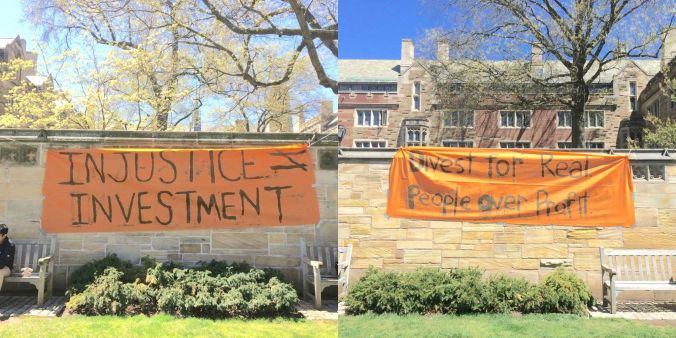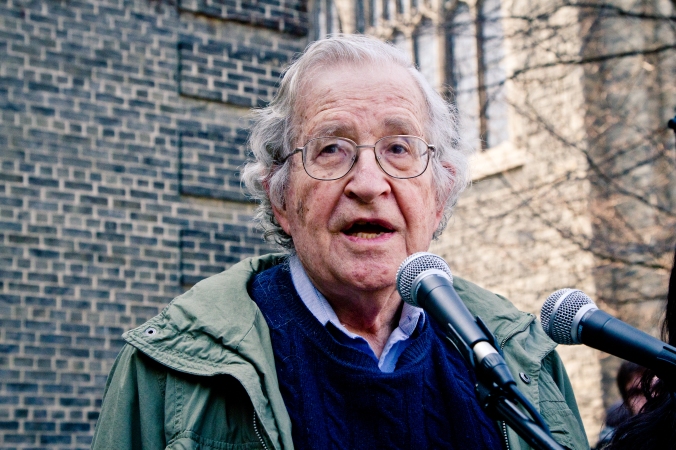
On April 12th, Yale’s Chief Investment Officer David Swensen announced the school’s decision to partially divest its endowment from fossil fuels. Swensen cited not ethical reasons, but financial prudence, as the top motivator behind the decision. Yale’s divestment came after Swensen asked their investment managers to consider the potential risks that investments in coal and oil pose to their endowment. One of the firm’s founders said they agreed climate change and carbon pricing were “unknowable risks and fossil fuel producers with significant carbon footprints were declining businesses, a profile the firm preferred to avoid.” Yale’s divestment is only the latest example of college and university endowments divesting in exactly the way Swarthmore’s Board of Managers claims is impossible.
Yale’s decision to withdraw $10 million of their remaining investments in the fossil fuel industry came after months of conversation with Yale’s external investment managers about the risks of continuing to invest in coal and oil. Swensen noted that “a few managers held positions we felt were inconsistent with our principles. Thermal coal miners and oil sands producers are two of the obvious industries that would suffer if regulation imposed the social cost of the carbon emissions on producers.” Two of Yale’s external managers maintained investments in industries incompatible with Yale’s principles, but Swensen prompted both managers to sell their holdings in oil and coal.
Yale saw a 11.5 percent return on their endowment in fiscal year 2015. Yale’s endowment is highly regarded as one of the best performing college endowments in the country. That Yale’s Chief Investment Officer has ruled divesting from fossil fuels financially prudent should not be taken lightly by Swarthmore, and makes clear that there is a strong financial case for divestment on financial grounds as well as moral political ones.
Swensen said that Yale’s endowment currently maintains only minor exposure to the oil and coal industries. But as the Yale case exemplifies, divestment is a process, not a leap that is taken overnight. Swarthmore could easily start taking small steps like asking our managers to move investments away from risky fossil fuels and identifying managers with funds in line with our financial and moral principles. This could begin the process of eliminating the financial risk posed by fossil fuel investments and taking the crucial step of revoking our support from an industry that is incompatible with a sustainable future.
This month, a slew of divestment victories means Swarthmore stands increasingly alone in refusing the call to divest. This past Monday, the University of Ottawa also joined the ranks of institutions committing to divest from fossil fuels. On April 12th and 13th, a total of 43 students were arrested for sitting in for divestment at University of Massachusetts at Amherst and Harvard, prompting UMass President Marty Meehan to state, “I want to make UMass the first public university in the country to divest our direct holdings from all fossil fuel companies.” On April 15th, one year after students were arrested for taking nonviolent direct action for divestment, the University of Mary Washington passed a motion to maintain a portfolio that is 98% divested from the largest 200 fossil fuel companies. Students have since begun sit-ins and taken direct action at Columbia, Vassar, NYU, Northern Arizona University, University of Montana, and James Madison University.
In order to successfully avert runaway warming and to meet the goals laid out at the Paris Climate talks, more than 84% of current fossil fuel reserves must stay in the ground. This means there is a “carbon bubble,” and that there will be a severe devaluation of fossil fuel stocks as we make the necessary transition away from fossil fuels. We are already witnessing this effect. Peabody Coal, the world’s largest private sector coal company, filed for bankruptcy early this month citing an “unprecedented industry downturn.” If carbon assets are not stranded in the very near future, then the future holds approximately 4.5 degrees of warming or more, according to the IPCC. Not only will this mean a devastating loss of human life, but it will also almost certainly entail a collapse of the global economy—and Swarthmore’s endowment along with it.
While members our Board of Managers questions the effectiveness of divestment as a tactic, the fossil fuel industry takes it quite seriously. Prior to filing for bankruptcy, Peabody Coal listed the fossil fuel divestment movement as a significant risk to their profitability in their annual Form 10-K report, warning that fossil fuel divestment “may adversely affect the demand for and price of securities issued by us, and impact our access to the capital and financial markets.”
Yet somehow, despite a community mandate from the majority of the student body, a historic faculty resolution in favor of divestment passed last May, as well as a letter signed by Noam Chomsky and six other honorary degree recipients. Swarthmore’s Board has continued to stand on the wrong side of history by remaining invested in fossil fuels. This may be less surprising in light of the connections Swarthmore Board members have with the fossil fuel industry. Rhonda Cohen is a director of Glenmede, a financial manager founded on the Sun Oil Company fortune. Cohen, along with Harold Kalkstein and Sam Hayes have past and present connections to over $3 billion in investments in fossil fuel companies.
The urgency of climate change means we must do everything in our power to move away from the carbon economy that is poisoning our planet and harming frontlines communities. Not only do we have a moral obligation to divest, but as Yale’s actions would suggest, a fiduciary one as well. Sparked on our campus five years ago, the movement to divest from fossil fuels has since catalyzed the divestment of funds totaling over $3.4 trillion by more than 500 institutions worldwide. We call on the Board of Managers to follow the example of these institutions and begin to divest our endowment of fossil fuels. Swarthmore must revoke its support of a destructive and outdated industry and invest in a just and sustainable future.
Works Referenced
http://yaledailynews.com/blog/2016/04/12/yale-begins-divestment-from-fossil-fuels/
http://leave-it-in-the-ground.org/wp-content/uploads/2016/02/Post-Paris-Carbon-Budget-LINGO.pdf


